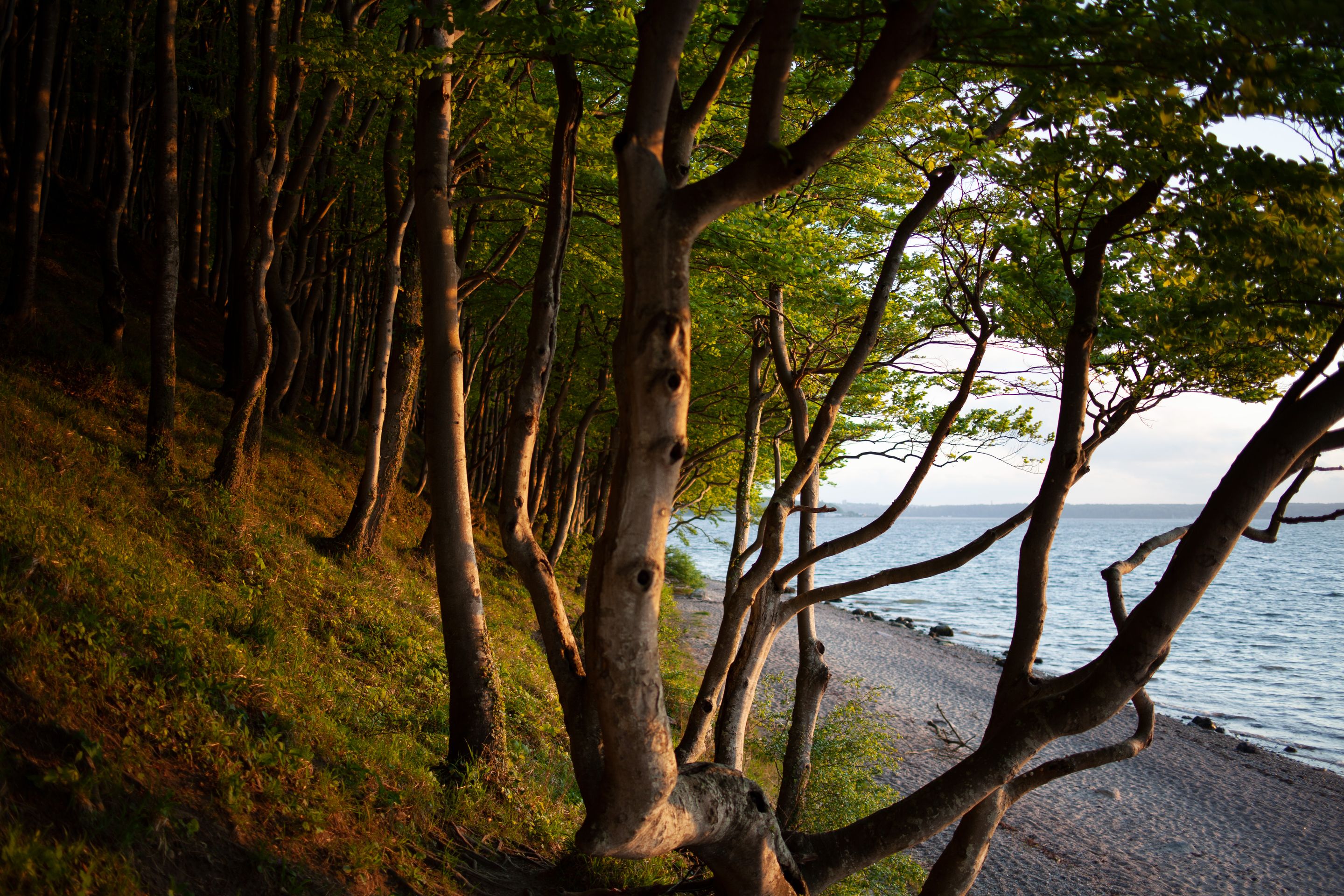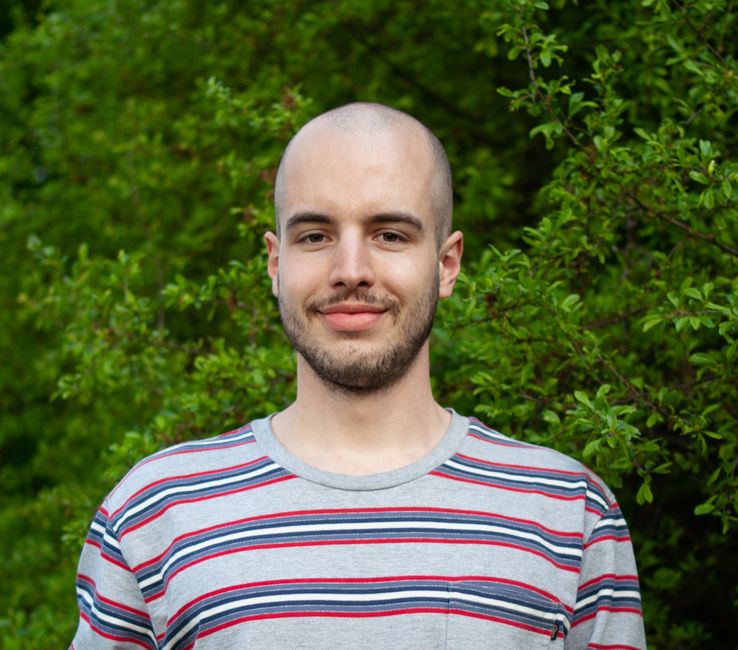31/03/23
ተሓቲሙ: 16.04.2023
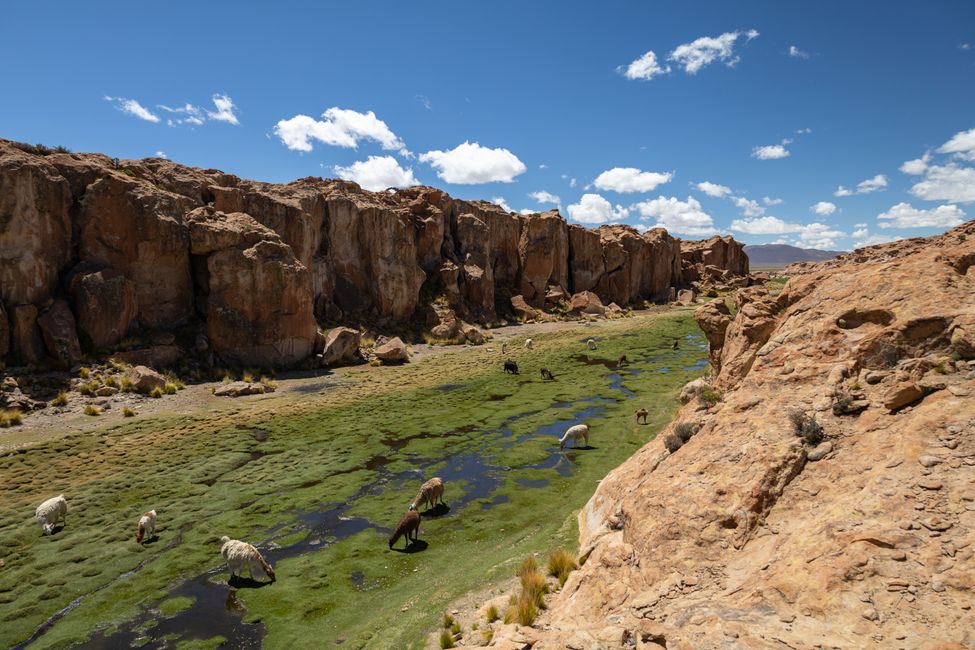
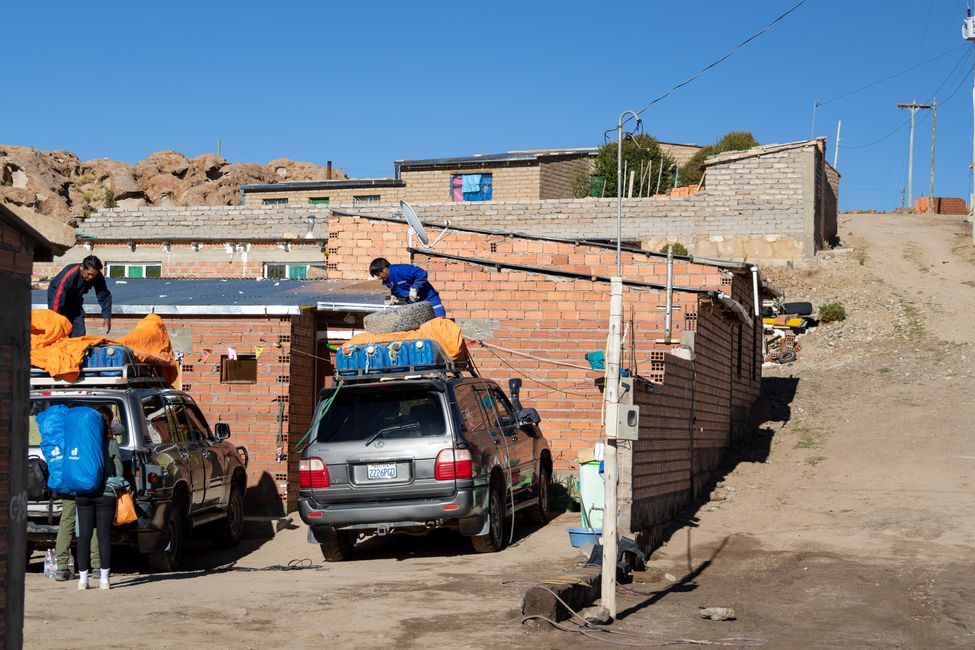
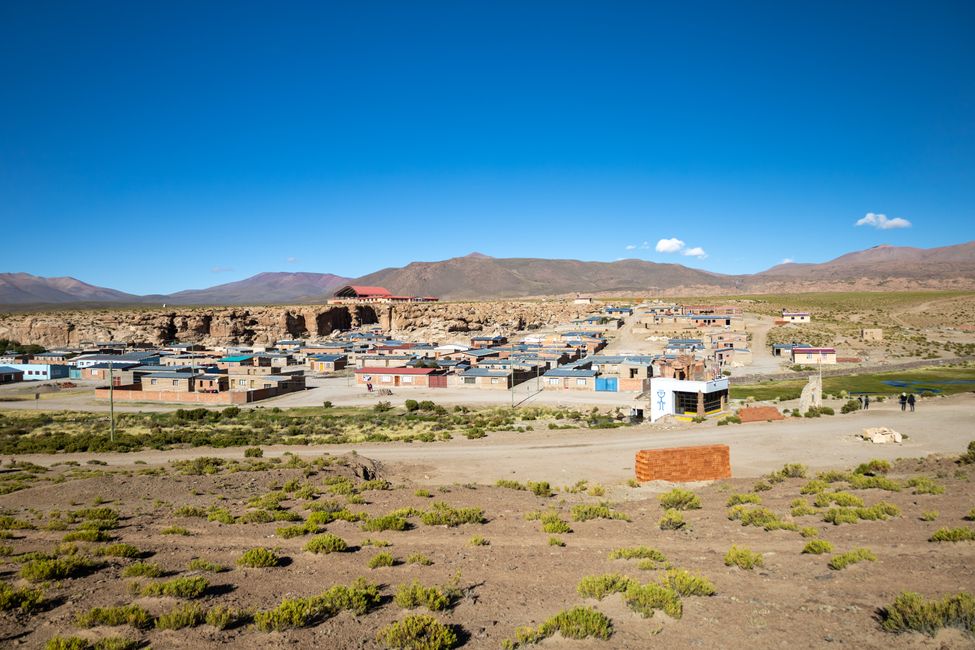
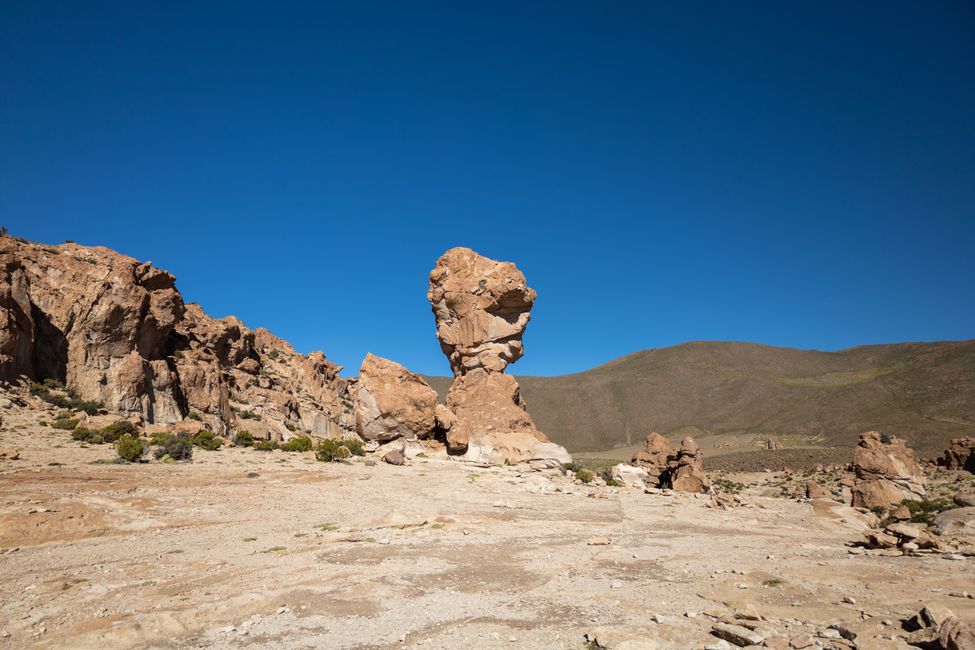
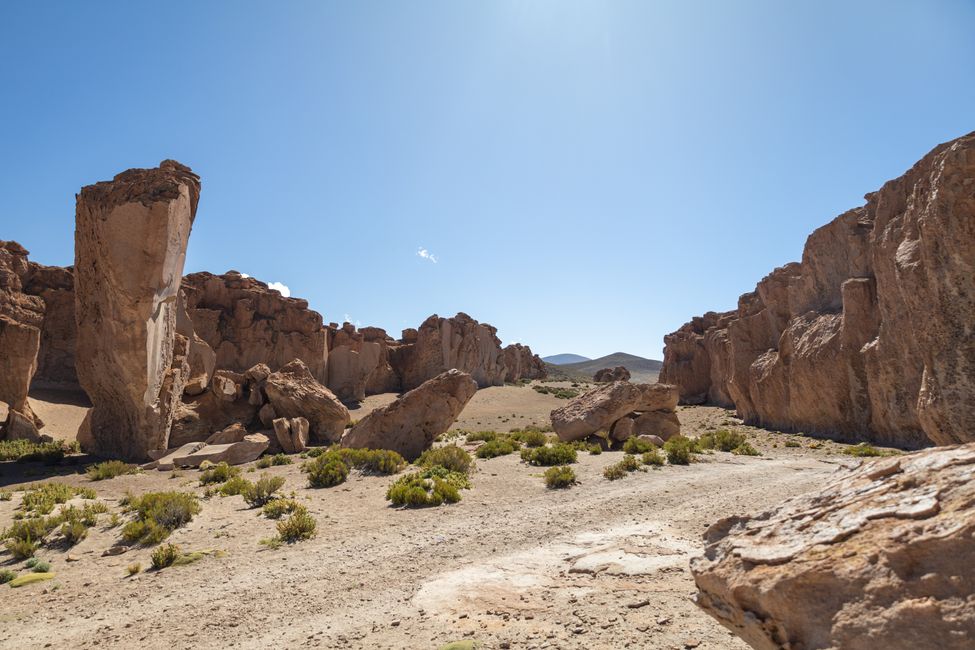
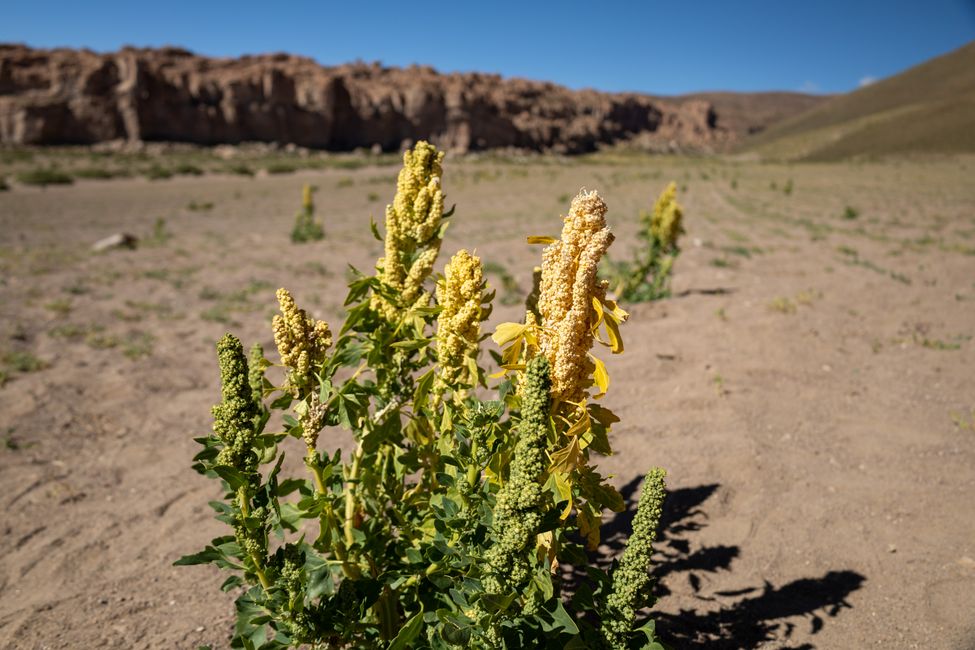
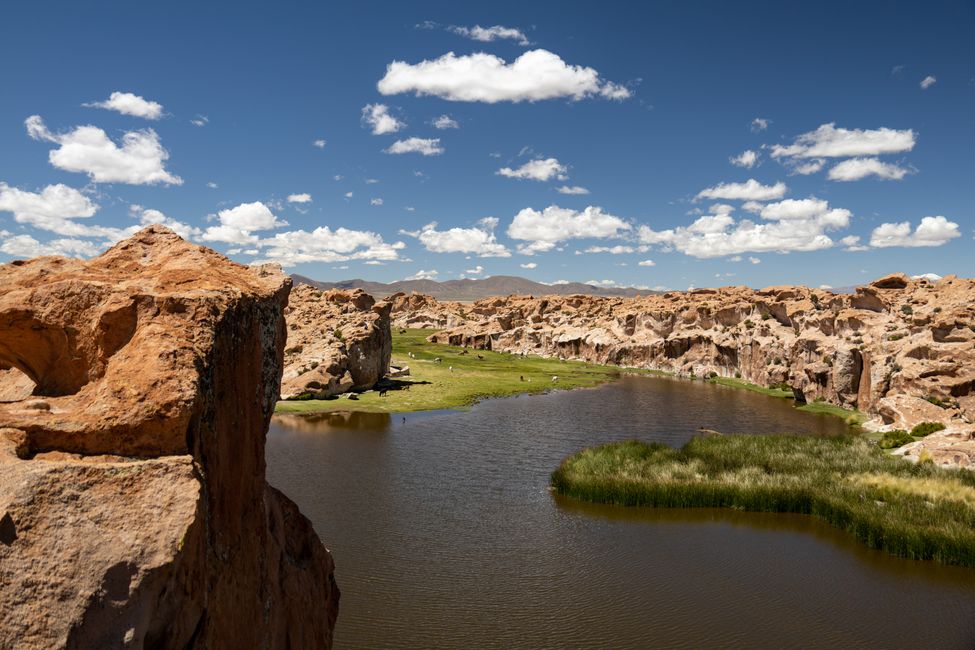
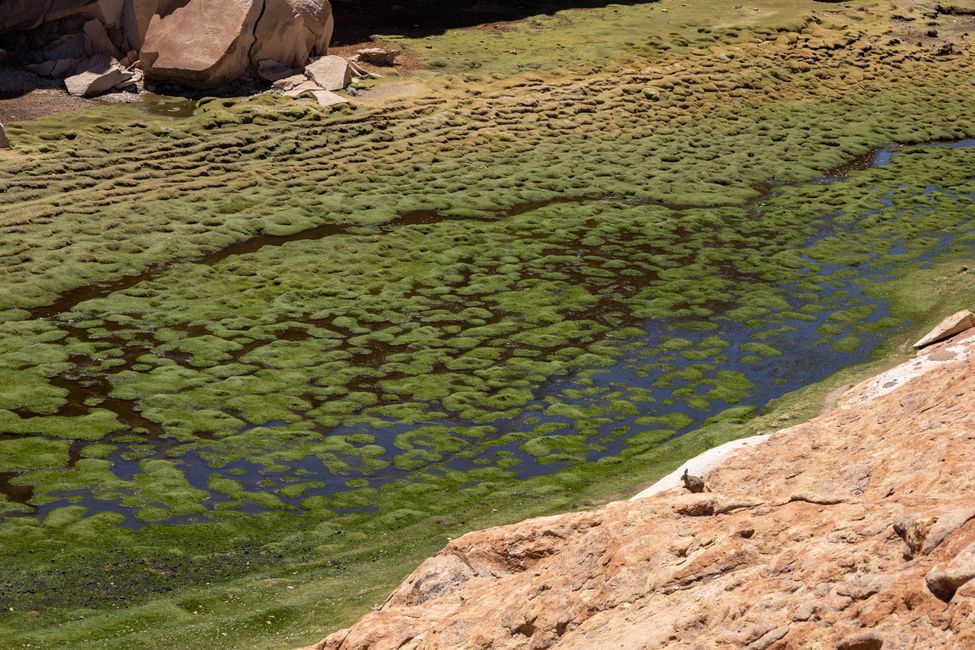
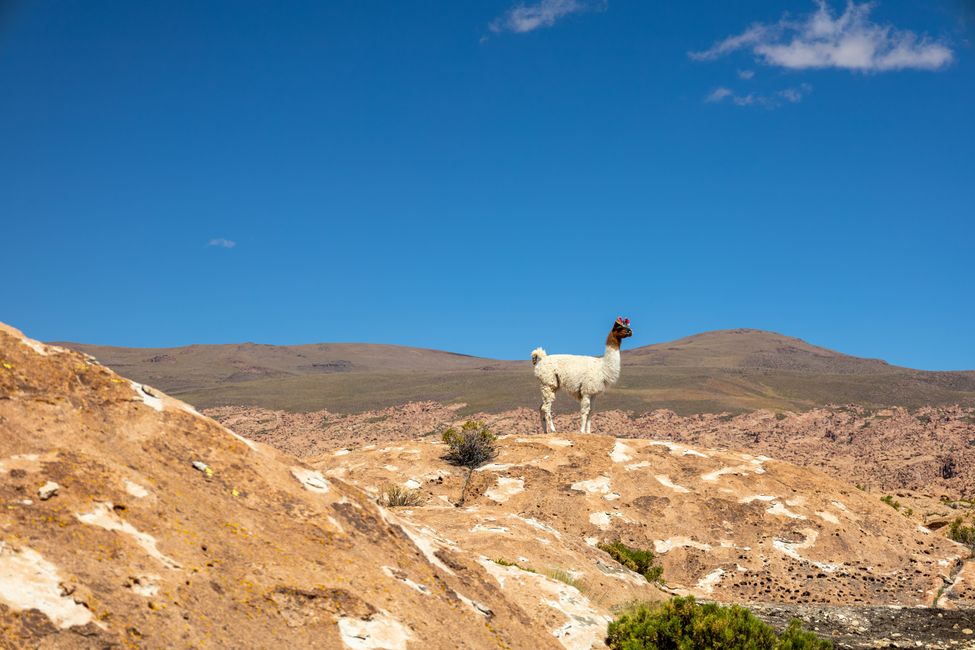
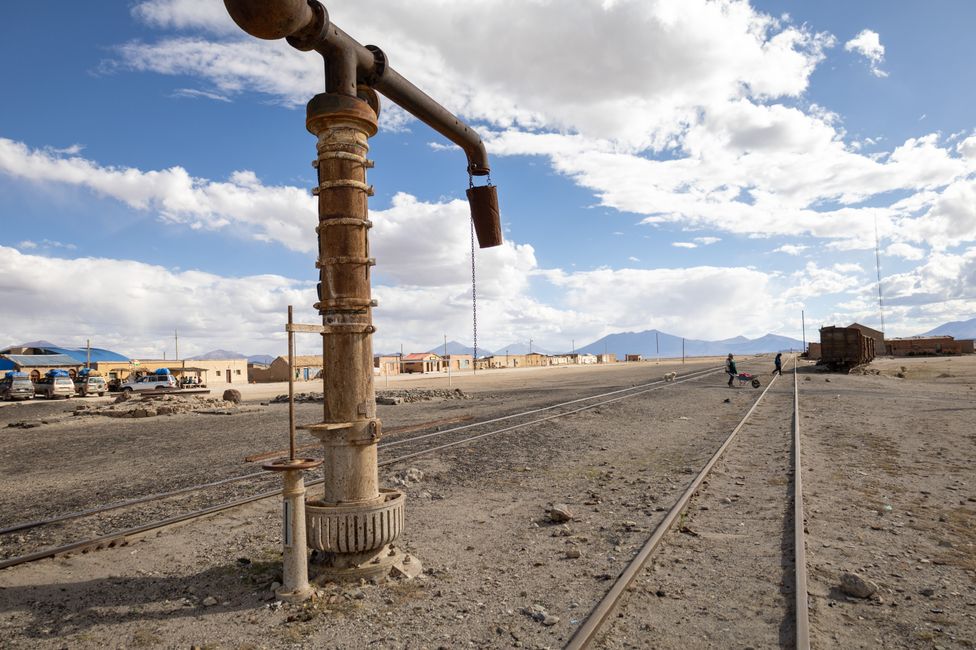
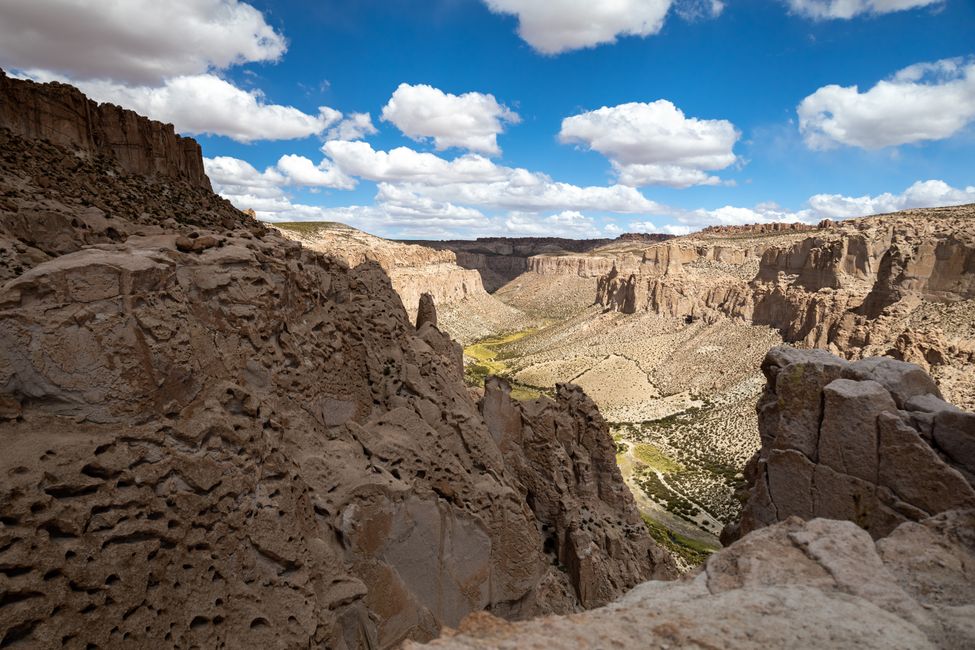
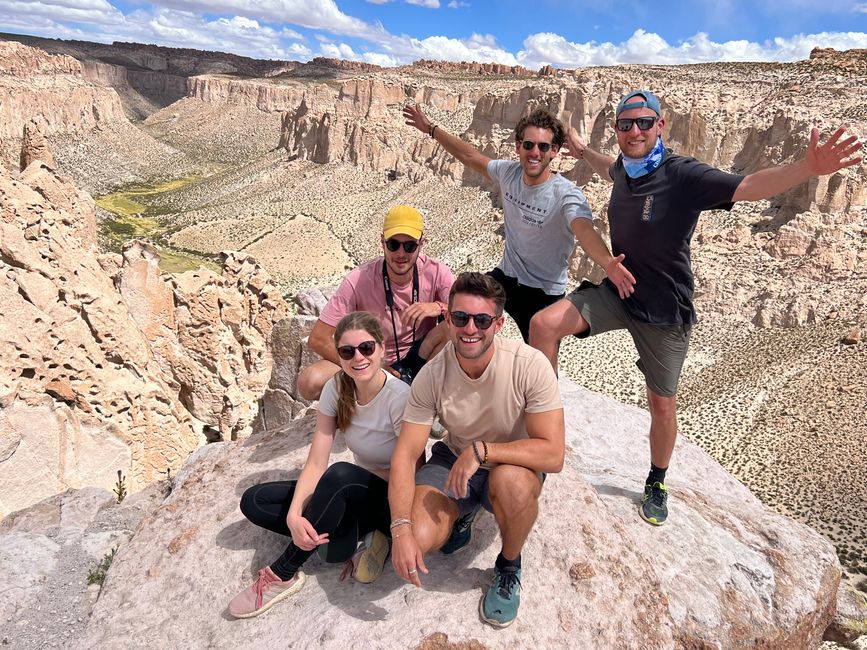
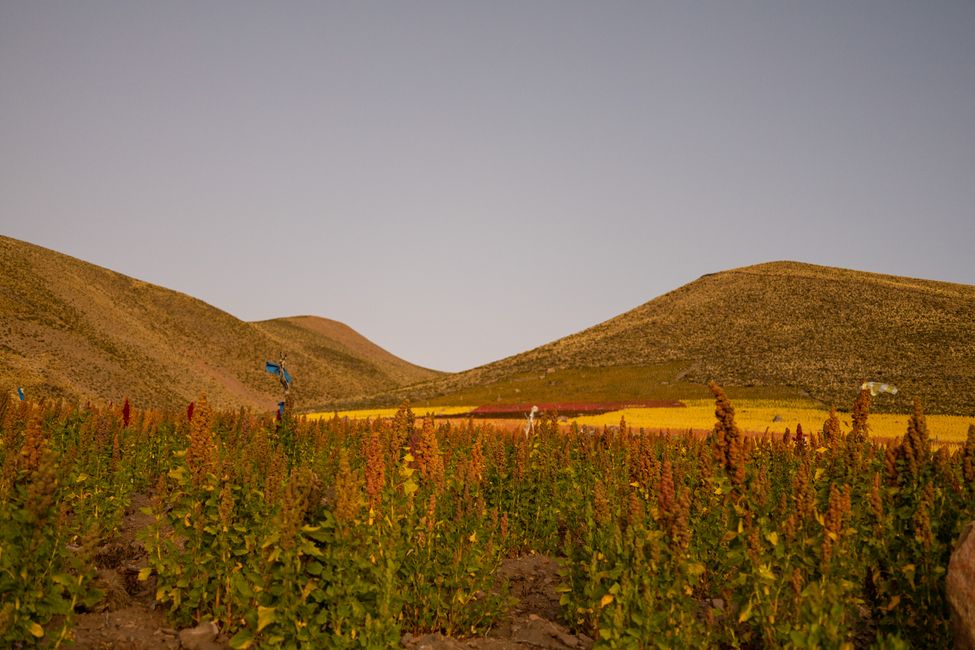
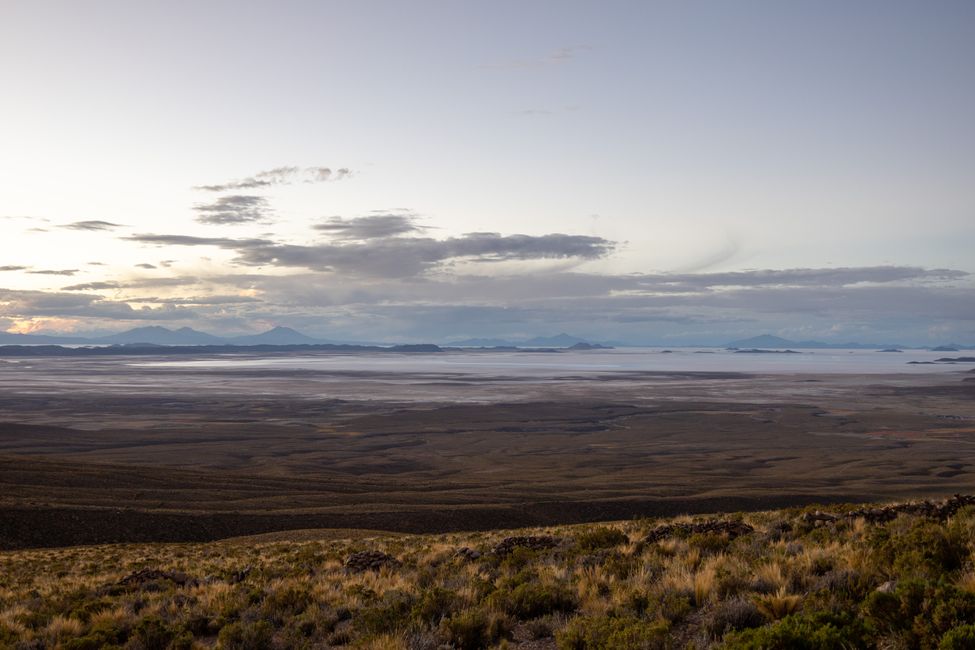
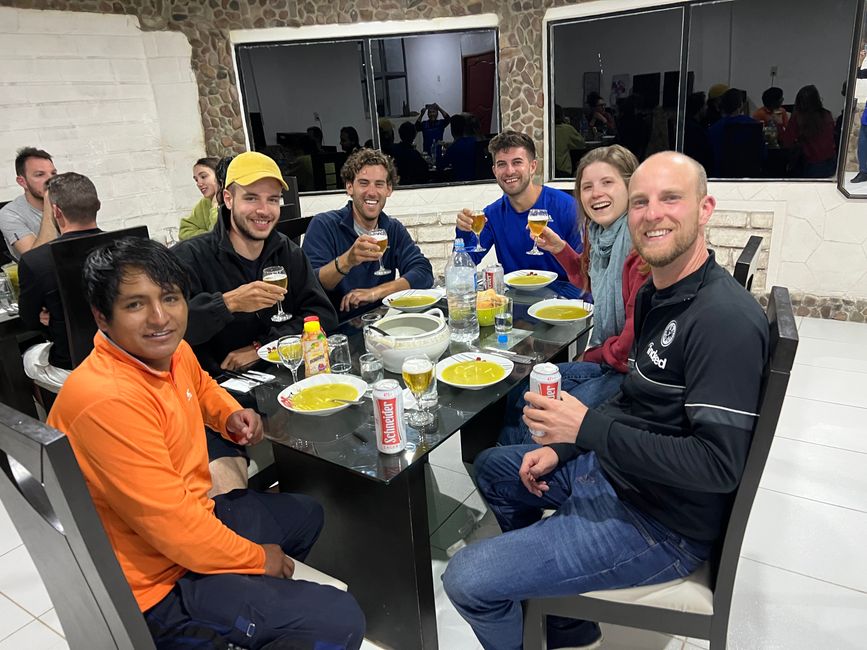
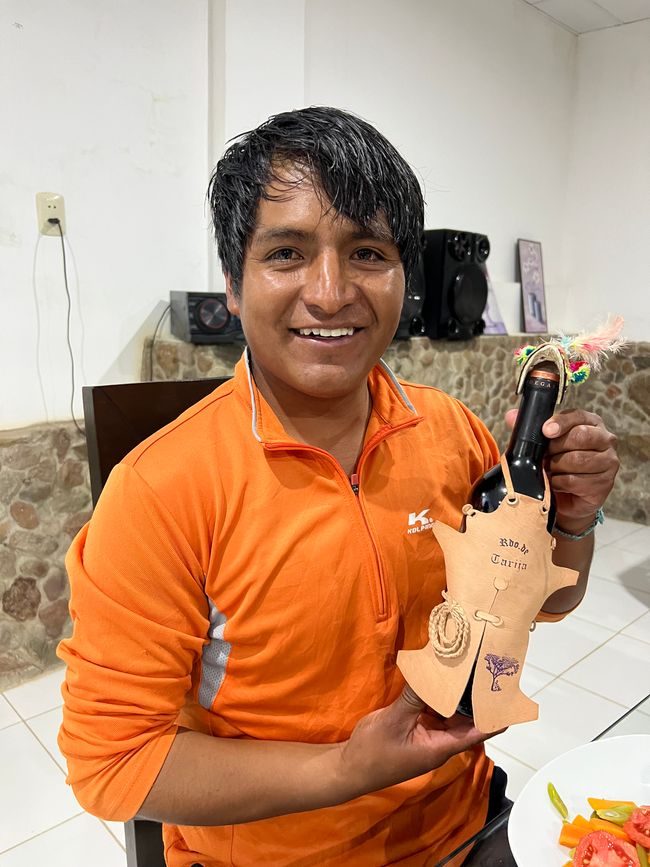
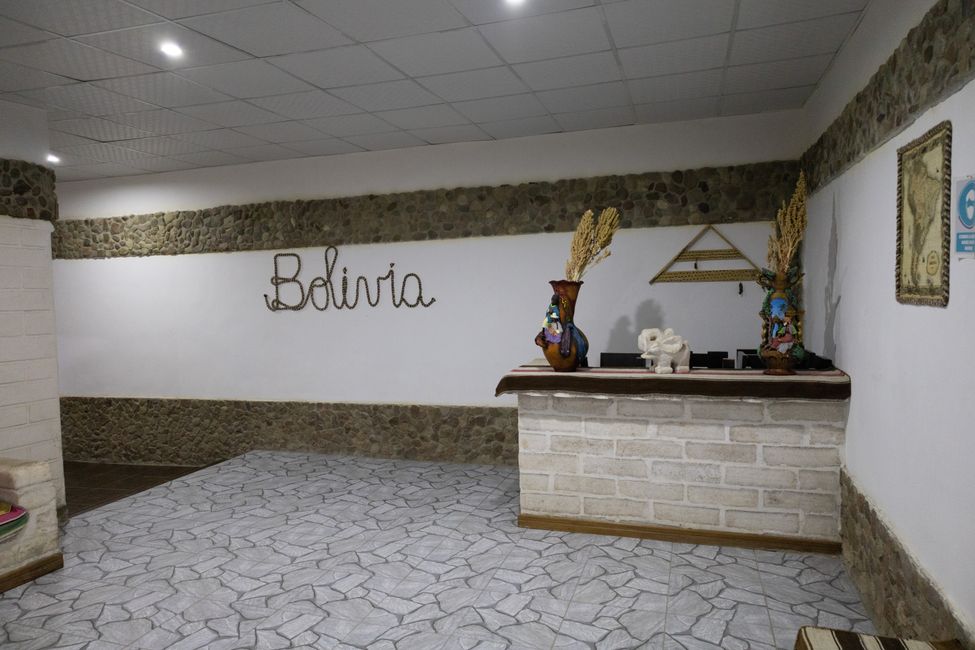
For breakfast, there are even pancakes. Josimar prepares the car while we stroll through the village of Villamar. There's not much to see.
First stop is at the World Cup rock, which, with a lot of imagination, resembles the football trophy.
Shortly after, we stop at Italia Perdida, characterized by many high rock formations. The name comes from the fact that about 20 years ago, when the place was hardly touristy, two Italians got lost. Fortunately, they were found by quinoa farmers and saved from death. The rocks are great for climbing.
We have lunch at Valle Catal. Juicy greenery where llamas graze among reddish rocks, very picturesque.
Many viscachas scurry from rock crevice to rock crevice.
We pass by colorful quinoa fields towards Anaconda Canyon.
Josimar explains that there is white, red, brown, and yellow quinoa, but they all taste the same.
Anaconda Canyon is just as impressive as the previous stops.
In the village of Julaca, we refuel with Bolivian craft beer.
There are still numerous remnants from the golden era of mining in the late 19th century when the Julaca village was built for loading the steam locomotive with water and coal (it had to be reloaded every 600km). Minerals are still exported on the train route, but less frequently than before.
At dusk, we get the first glimpse of the salt flats, it looks like a sea.
We stay overnight at the salt hotel, which is completely made of salt. The walls actually taste salty.
For dinner, Josimar joyfully presents us with a local bottle of red wine on the house. The drop is called "Kohlberg". Somehow alcoholic beverages constantly have German names in South America.
After dinner, I go stargazing with the Brazilian couple from the other car. I somewhat understand him, but she has consumed a lot of red wine, which, combined with her slurred Brazilian accent, becomes incomprehensible word mush.
መልሲ
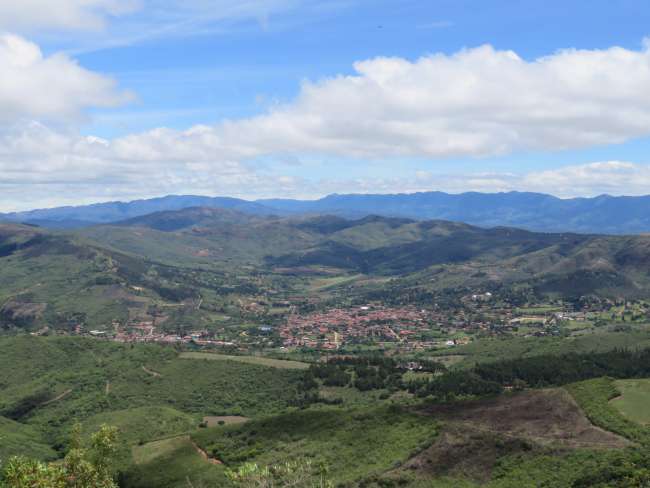
ጸብጻባት ጉዕዞ ቦሊቭያ
